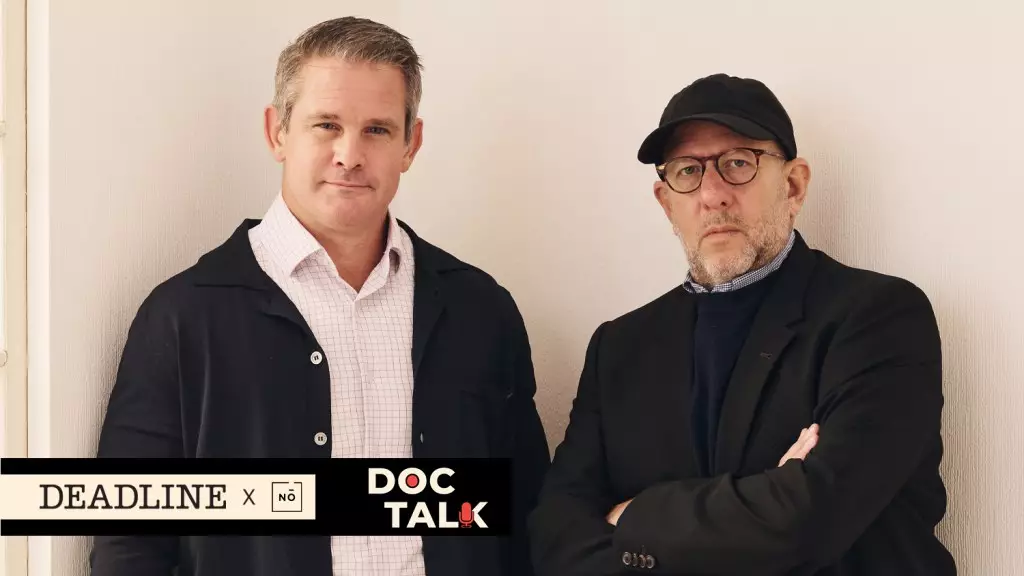Former Congressman Adam Kinzinger encapsulates a complex figure in contemporary politics. Once a promising member of the Republican party, Kinzinger has found himself at the center of intense scrutiny and backlash for his decision to break rank with the party line, particularly following the events surrounding the January 6th Capitol insurrection. His participation in the select congressional committee investigating the insurrection has transformed him into a reluctant hero among many Democrats, yet this newfound status has come at an alarming personal cost.
The backlash against Kinzinger highlights a troubling trend in American politics where loyalty to a party begins to overshadow moral and ethical considerations. His principled stand against Donald Trump’s attempts to undermine democracy resonates with those craving integrity but, paradoxically, has isolated him within his own political circle. As the Republican party grows more entrenched in loyalty to Trump, figures like Kinzinger become increasingly vulnerable to vilification from former allies.
In recent interviews, Kinzinger has candidly discussed the grave repercussions he has faced since his decision to support the investigation. Alongside his wife and young child, Kinzinger has been subjected to relentless death threats from ardent Trump supporters. Such animosity reflects a disturbing narrative: that dissent within one’s own party can spark a ferocious, and often violent, backlash. The potential for physical harm and the emotional strain on his family are harrowing, painting a picture of the cost of doing what many would deem “the right thing.”
Beyond just threats directed at him, Kinzinger has revealed that his family, including his parents, have experienced hostility from their social circles due to his political choices. This reality underscores an alarming erosion of community and familial bonds, showcasing how political divisions have seeped into the fabric of personal relationships. It begs the question: in what kind of society do we find ourselves, where political affiliations can dictate intimate personal interactions?
At the Toronto International Film Festival, Kinzinger presented the documentary “The Last Republican,” directed by Steve Pink, which chronicles his political evolution. The film serves as a reflection on the ideological shifts within the Republican party and Kinzinger’s place within these dynamics. The collaboration between Kinzinger and Pink, who comes from a more liberal viewpoint, illustrates an unlikely alliance rooted in shared values of integrity and authenticity. Their relationship reaffirms the notion that bridges can be built across the political aisle, even in the most polarized of times.
Kinzinger’s introspection, particularly his regret about not leading a “coup” within the Republican party to reclaim its original values, reveals a deep sense of yearning for a return to principles that many in his party seem to have abandoned. His frank admission raises pertinent questions about the trajectory of the GOP: could a reevaluation of its core values and a pushback against extremism occur from within? Or is the party now beyond redemption for those who once viewed it as a bastion of conservative principles?
The Broader Cultural Conversation
Kinzinger’s narrative is not only emblematic of personal battles but also symptomatic of larger cultural skirmishes occurring in America today. Political discourse has become more toxic, with dissent often met with hostility rather than reasoned debate. The interview serves as a rallying cry for individuals across the spectrum to reconsider their engagement with politics, pushing for dialogue that acknowledges differing perspectives, even in the face of vehement disagreement.
As Kinzinger and others like him face threats for their convictions, it is essential to reflect on what these realities mean for the future of American democracy. Kinzinger has made his choice, and while he may serve as a cautionary tale of the risks involved in political integrity, he also embodies the potential for transformative change when one chooses honesty over convenience.
The story of Adam Kinzinger resonates broadly, echoing the struggles many face in navigating their beliefs amid a fractious political landscape. His experiences may serve as a testament to the power of standing firm in one’s convictions, regardless of the personal and political costs.


Leave a Reply